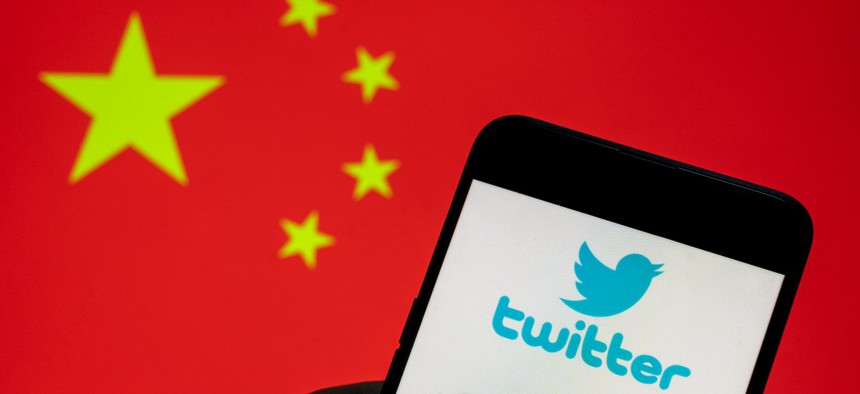China's Reported Manipulation of Twitter Draws Lawmaker Questions

Budrul Chukrut/SOPA Images/LightRocket via Getty Images
Several Democrats on the House Intelligence Committee sent a letter to Twitter CEO Elon Musk expressing national security concerns about reports that Beijing launched an information suppression campaign to hide news of mass public protests.
Influential lawmakers on the House Intelligence Committee sent a letter to Twitter CEO Elon Musk on Tuesday expressing “deep concern” over reports that the People’s Republic of China—or PRC—orchestrated a manipulation campaign on the social media platform to obscure news about mass public demonstrations across the country.
“We are gravely concerned about the potential impacts of the PRC’s growing cyber-enabled capabilities, including foreign malign influence operations, on U.S. national security interests both at home and abroad,” Committee Chairman Adam Schiff, D-Calif., and Reps. Raja Krishnamoorthi, D-Ill., and Jackie Speier, D-Calif., said in the Dec. 6-dated letter.
The lawmakers’ missive comes after an apartment fire in Urumqi—the capital of China’s western Xinjiang region—on Nov. 24 killed 10 people and injured nine others, spurring protests across the country over Beijing's strict zero-COVID policy, which was blamed for hampering firefighters’ ability to quickly respond to the blaze.
As Beijing cracked down on the protestors, reports emerged that Chinese-language Twitter accounts—some of which had been dormant for several years—began to spam the platform with links to escort services and pornography in posts alongside the names of cities with ongoing mass demonstrations to obscure coverage of the protests.
The lawmakers pressed Musk, who acquired Twitter in October and has previously referred to himself as a free speech absolutist, to provide them with “additional information regarding the recent malicious activity and include any indications whether this activity was directed by the PRC.”
The letter highlighted a recently declassified National Intelligence Council assessment on “Cyber Operations Enabling Expansive Digital Authoritarianism”—originally published on April 7, 2020, and publicly released on Oct. 25—which said, in part, that “China “builds on its success at domestic repression when it conducts cyber operations in other countries.”
“To ensure that the United States is prepared to counter, thwart and deter foreign influence threats online, it is critical that we understand the extent of the PRC’s potential manipulation of Twitter and identify how recent changes at Twitter are affecting the threat of CCP foreign influence operations on social media,” the letter added.
The lawmakers pressed for Twitter and Musk to answer questions about whether or not the platform knew if the Chinese manipulation campaign was state-sponsored; if there was any evidence of China or other state actors working “to deliberately suppress access to information through the use of bots or other manipulations;” if Twitter currently has “the capability to identify largescale misinformation, disinformation and information suppression on its platform;” and the measures currently in place to address information suppression campaigns, “given Twitter’s emphasis on free speech.”
The letter asked for responses from Musk by Dec. 31.






